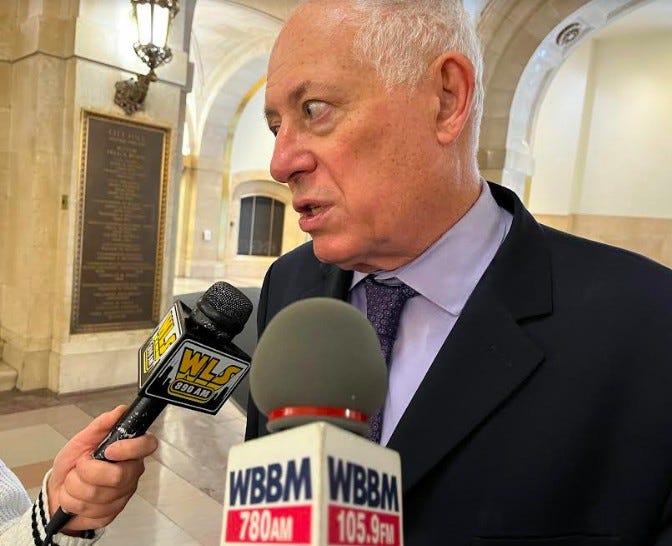
(WBBM NEWSRADIO) -- Former Gov. Pat Quinn announced Thursday that he will not join the crowded field of candidates — including his own former running mate — seeking to deny Mayor Lori Lightfoot a second term.
Quinn, 73, supported Lightfoot over County Board President Toni Preckwinkle in the 2019 mayoral runoff. He spoke at a Lightfoot campaign rally.
He gave her a campaign contribution. He put a Lightfoot sign on the front lawn of his Galewood home.
But that was before Lightfoot reneged on her campaign promise to fight for and abide by a two-term limit for the mayor of Chicago and proposed selling corporate naming rights to Soldier Field to bankroll a $2 billion domed stadium renovation.
Now, Quinn calls Lightfoot a huge disappointment, in part, because she broke the “solemn promise” to limit herself and future mayors to two terms.
But after circulating nominating petitions and conducting a poll that shows the race was winnable, Quinn decided to remain on the outside looking in.
He plans to continue his drive to empower voters in Chicago and across the state to petition their government to put binding referendums on the ballot. He does not believe he can do both at the same time.
“You can have statewide referendums, which I’m interested in. You can have city referendums, which I’m definitely interested in. But, I’m also understanding that you can’t organize those kinds of causes if you’re also running for a public office,” Quinn said.
“So after much thought, I decided not to run for mayor of Chicago.”
Over the years, Quinn has enjoyed his greatest successes as a political gadfly. He led petition drives that reduced the size of the Illinois House and created the Citizens Utility Board.
His record of actually running things is a bit murkier.
As the “accidental governor” who made the leap from lieutenant governor after Gov. Rod Blagojevich was impeached, Quinn’s $54.5 million Neighborhood Recovery Initiative to fund anti-violence efforts in the Chicago area was dogged by accusations of clout and political favoritism.
On Thursday, Quinn insisted that politics played no role in awarding anti-violence grants, which are even more prevalent today with the avalanche of federal stimulus funds.
“The program worked very well. It helped save lives. As a matter of fact, after I left and some of the programs Rauner ended, he had more violence than ever,” Quinn said of his Republican successor.
“It was a program that was designed, as the ones are today, to prevent violence from happening and to give, especially young people, things to do that were positive and not negative.”
Mayoral challenger Brandon Johnson argued Thursday that Chicago cannot “continue to rely upon the vestiges of the past to take us into the future.”
Quinn, who still plays regular games of pickup basketball at Union Park, laughed off the thinly veiled reference to his age before deciding to remain on the sidelines.
“They said that when I ran for lieutenant governor 20 years ago. In 2002, one of my opponents sent out a direct mail piece and had me dressed in a 1976 leisure suit. I got elected lieutenant governor. Then I got elected governor. I’m used to that. I’m used to boo-vations from politicians,” he said.
Quinn’s decision to take a pass is a boon to his former running mate Paul Vallas, who remains the only white candidate in the race.
If Quinn makes an endorsement in the race, as he claims he will, Vallas would seem to be a prime candidate to receive it.
On Thursday, the former governor offered no hint as to whom he will support. He would only predict a “stern contest” for Lightfoot.
(Source: Sun-Times Media Wire & Chicago Sun-Times 2022. All Rights Reserved. This material may not be published, broadcast, rewritten, or redistributed.)
Listen to WBBM Newsradio now on Audacy!
Sign up and follow WBBM Newsradio
Facebook | Twitter | Instagram


